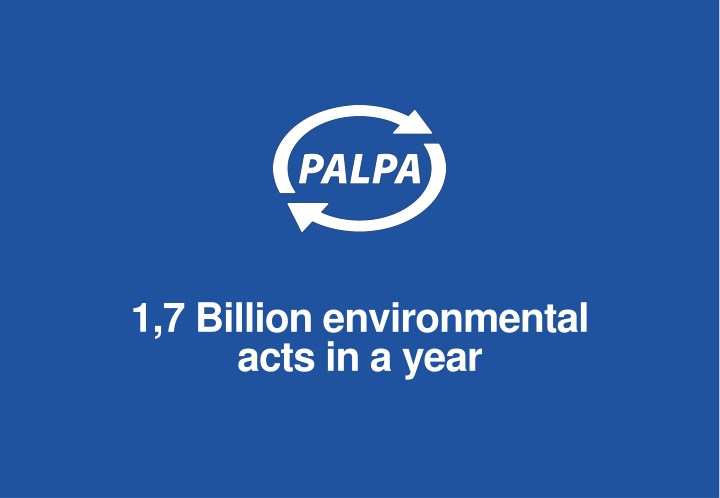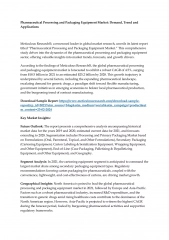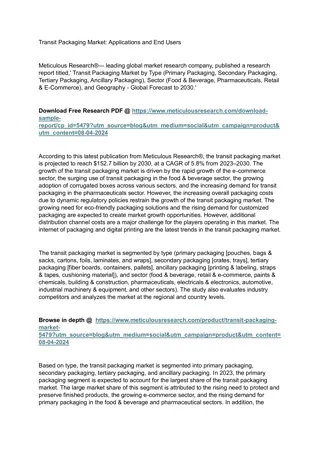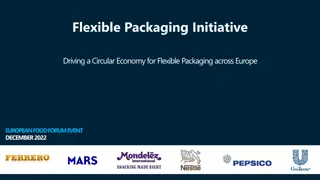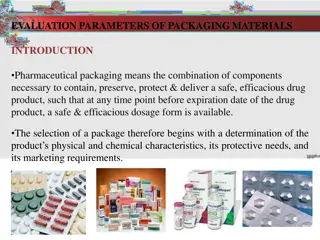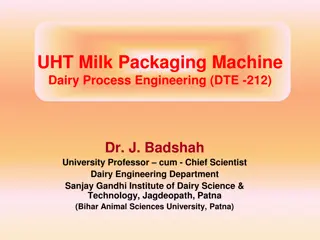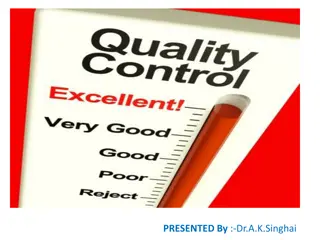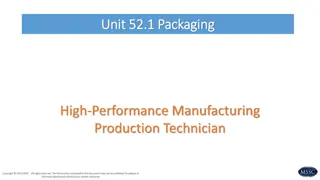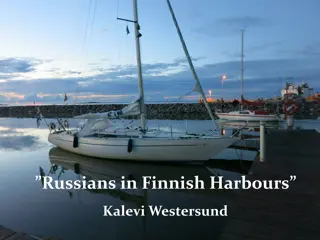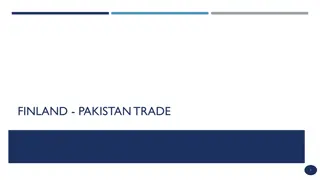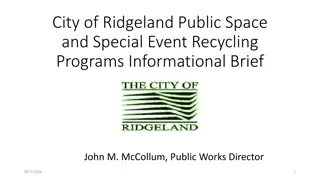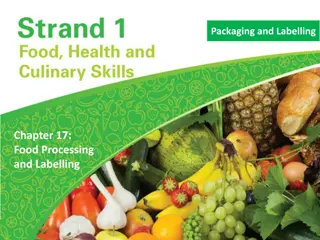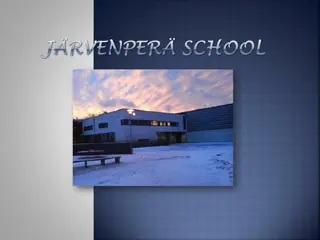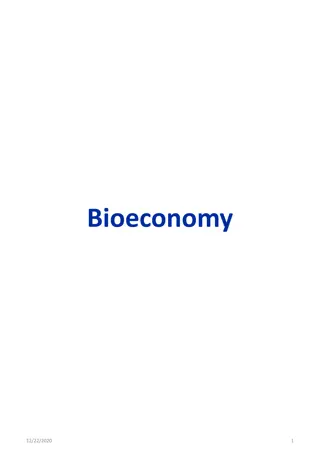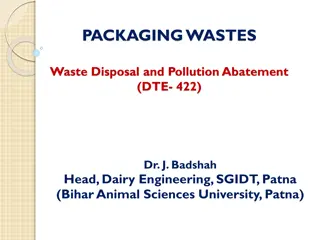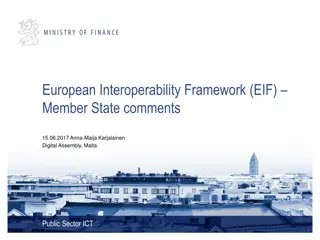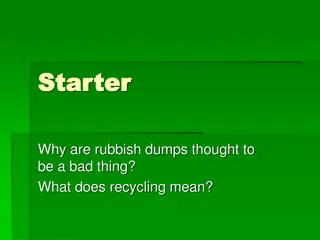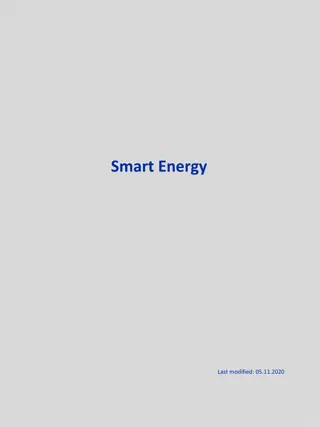Sustainable Beverage Packaging Recycling System in Finland
Finland's PALPA oversees a successful deposit beverage package recycling system, with an impressive return rate of over 90%. This initiative involves annual environmental acts, the return of 1.7 billion beverage packages, and the recycling of various materials like glass, aluminum, and PET bottles. PALPA's vision is to responsibly and efficiently manage deposit beverage package recycling for the benefit of consumers, the beverage industry, and the environment.
Download Presentation

Please find below an Image/Link to download the presentation.
The content on the website is provided AS IS for your information and personal use only. It may not be sold, licensed, or shared on other websites without obtaining consent from the author.If you encounter any issues during the download, it is possible that the publisher has removed the file from their server.
You are allowed to download the files provided on this website for personal or commercial use, subject to the condition that they are used lawfully. All files are the property of their respective owners.
The content on the website is provided AS IS for your information and personal use only. It may not be sold, licensed, or shared on other websites without obtaining consent from the author.
E N D
Presentation Transcript
1,7 Billion environmental acts in a year
The yearly beverage package returns in Finland are 1.7 Billion = 80 000 000 KG x 10
Recycle don t throw in the nature The used beverage cans returned in Finland during a year would cover 1000 ha of land The cans could cover a highway from Helsinki to Lapland The cans in queue would go three times around the world. It would take 69 days to drive past of the line on average speed of 80 km/h
The Finns are the best beverage package returners in the world Return rate of beverage packages is more than 90%
Shareholders Suomen Palautuspakkaus Oy Palpa Lasi Oy 47% 50% 50% 53% Altia Cisa Fondberg Hartwa-Trade Gust. Ranin Association of small breweries Suomen Retailers Inex Partners / COOP Ruokakesko Tuko Logistics Alko Beverage industry Hartwall / Unibrew Palautuspakkaus Olvi Sinebrychoff / Carlsberg
PALPA in brief Suomen Palautuspakkaus Oy was established in 1996 to administrate recycling system for used beverage cans with deposit Ekopullo to administrate the recycling of refillable packages in 2004 One-way PET bottle recycling system was introduced in 2008 One-way glass bottle recycling system was introduced in 2011-12 Group turnover appr. 70 M PALPA is a non-profit company 13 employees
VISION MISSION PALPA takes care of deposit beverage package recycling in responsible and cost efficient manner PALPA runs the best deposit beverage package recycling systems for consumers, beverage industry and the environment
PALPA in 2015 300 M worth of deposits credited 1.7 Bn Returned deposit packages 1500 New packages (SKUs) inspected and approved 17 000 Metric tons of UBC aluminium recycled 12 300 Metric tons of PET-bottle bales recycled 50 000 Metric tons of glass recycled 4 000 Reverse vending machines (RVM) 4 700 Retail collection locations for consumers 8 500 Collection locations in hotels, restaurants, catering (HoReCa)
PALPAs recycling systems: Beverage can Return rate 95 % Deposit value 0.15 Volume 1.2 Billion returned cans 17 000 MT of UBC-aluminium Benefit UBC aluminium is melted in recycling furnaces in UK and France and casted to aluminium ingots. The ingots are rolled to material of new beverage cans. The aluminium can be infinitely recycled and energy needed to recycle cans is only 5% compared to virgin aluminium material.
PALPAs recycling systems: One-way plastic bottle Return rate 93 % Deposit value Depending on package size 0.10 , 0.20 or 0.40 Volume 350 Million returned bottles 12 500 MT of PET Benefit Clear PET-bottles can be recycled to new bottles (B2B) and other food packages. Colored PET-bottles are recycled to raw material of packaging or textile industry.
PALPAs recycling systems: One-way glass bottle Return rate 89 % Deposit value 0.10 Sales volume 107 Million returned deposit bottles 50 000 MT of recycled glass Benefit Glass bottles are recycled to new bottles or raw materials i.e. insulation products in construction industry. Using recycled glass as raw material consumes 30 % less energy than virgin material.
Factors of high return rates Learned return habit Correct deposit values Wide Environmental awareness coverage of deposit packages Wide consumer collection network Well functioning RVMs Location of consumer collection locations
Recycling systems and operations
Based on governmental steering Packaging tax for certain beverages - Importers and producers have to pay packaging tax of 0.51 / ltr for packages in customs tariff group CN 22 - Importer or producer is allowed to tax exempt if the company and the products are registered in deposit recycling system approved by environmental authorities Joining in recycling system not mandatory Deposit recycling systems are approved and controlled by Environmental Authority under Ministry of Environment
The taxation has steered the packaging choices PALPA: returned deposit packages 1996 2015 (Million units) 1,800,000 1,600,000 1,400,000 1,200,000 1,000,000 800,000 600,000 400,000 200,000 0 1996 1997 1998 1999 2000 2001 2002 2003 2004 2005 2006 2007 2008 2009 2010 2011 2012 2013 2014 2015 Can PET-bottle One way glass bottle The change in package taxation during 2005-2008 caused considerable growth of one-way packages in the Finnish market
Operating network PALPA s strategy is to run the recycling system by a network of companies Operating with a network allows flexibility and scalability All operations are outsourced
Recycling is collaboration Pirkanmaa ELY-centre IT system Service provider Finnish Customs Credit providers Ministry of Environment Law offices Sticker producer Competition and consumer authority Producers and importers Consumers PALPA Communication agency Retailer and producer associations Advertisement agency Environmental register of packages HoReCa Retailers Transport companies Producer communities Handling plants Media Package material producers Recyclers RVM Wholesalers producers
Material flow New packages made of recycled material are manufactured Beverage producer / importer Products are sold to stores 1 7 Consumer buys the product 2 Retailer / Return location Material recycler Consumer 3 Consumer returns the package 4 6 Baled material is delivered to material Transport operator collects the packages recycler Baling and counting plant Transport operator 5 Packages are transported to baling and counting plant
Deposit flow Money (deposit) Retailer pays the deposit within the product price Data i Importers and producers pay the deposit to PALPA Beverage producer / importer Consumer pays the deposit i Retailer / Return location Material recycler Consumer i The deposit is returned to consumer i i The deposit is credited to the retailer by PALPA PALPA gets the information of returned packages from retail location (RVM), transport operator and counting plant Baling and counting plant Transport operator
Other fees and compensations Money (deposit) Beverage importers / producers pay a recycling fee to cover the rest of the recycling system costs Money (other compensation) Beverage producer / importer Data i Material recycler pays for the recycled material i Retailer / Return location Material recycler Consumer i PALPA pays a handling fee to the retailer for each package collected from consumers i i Baling and counting plant PALPA pays for baling and counting service PALPA pays a transportation fee for each transportation unit collected from the return location Transport operator
Package materials and markings PALPA inspects all the packages that are registered in recycling systems before they are accepted. Materials have to comply with specifications agreed with recycling plants Deposit value has to be clearly marked in product and comply with marking instructions Package has to be recognizable by all the reverse vending machines to secure reliable deposit payout to consumer
The system is based on package recognition Recognition of packages is important To secure correct payment to consumer To support early sorting of material To make sure that system costs are correctly allocated to different recycling systems and companies Recognition is made by reverse vending machine The RVM recognizes barcode and shape / dimensions Recognition information is compared with package database in RVM RVM database is updated 24 times a year The RVM prints out a receipt of deposits to the consumer, sorts the packages and in most cases compacts the packages The information of returns is collected and sent to PALPA in electronic mode
Majority of recycling system costs is related to handling and logistics Challenge: Wide consumer collection network is one of major factors in reaching high return rates. The low population density in Finland increases the cost of transportation Solutions: Baling and counting operations have been decentralized to several locations in Finland. Material is compacted and sorted as early as possible after the collection.
Financing the recycling systems Recycling system revenues come mainly from material sales and recycling fees Recycling fees are paid by beverage producers and importers All the fees and compensations are decided by PALPA board of directors All the fees are based on real costs. PALPA is a non-profit company All the recycling systems have their separate P&Ls and their own pricing. No cross subvention between the systems is allowed. All the fees and compensations are same for companies selling, collecting or transporting similar packages
Aluminium The compacted cans are pressed in bales and delivered to recycling plant. In the recycling plant the bales are melted in a furnace and casted into aluminium ingots. The ingots are delivered to a rolling plant and rolled to very thin rolls which are further manufactured to can bodies The nearest recycling plants for UBC-aluminium are in UK, Germany and France
PET Plastic bottles are compacted and baled. The bales are shipped to recycling plants in Finland, Latvia and Germany. The bottles are sorted and ground to flakes. Cap and label residues are removed and flakes are washed and sorted. The washed clear PET flakes are processed to granulate / URRC-flakes which can be used as raw material of new PET packages. The coloured flakes are used as raw material in packaging and textile industry
Glass The glass bins are emptied at baling plants and glass is transported in containers to a recycling plant in Finland At the recycling plant the glass bottles are crushed, washed and color sorted by a sorting line to cullets The new products are made from melted cullets All the glass bottles are recycled in a recycling plant located in Finland
Short summary of PALPA Suomen Palautuspakkaus Oy (PALPA) administrates and develops three deposit beverage package recycling systems PALPA does not own any part of the recycling system or does not have any ownership within system operators. 1 By joining in a recycling system the beverage producers and importers can get an exempt from package tax The Recycling system costs are covered with recycling fees paid by producers and importers. PALPA is a non-profit company. 2 Recycling systems operated by PALPA collect annually approximately 1.7 Billion packages and 80 000 tons of material Return rates are the best in the world, over 90 % All the packages are recycled into new packages or raw materials for other industries 3
